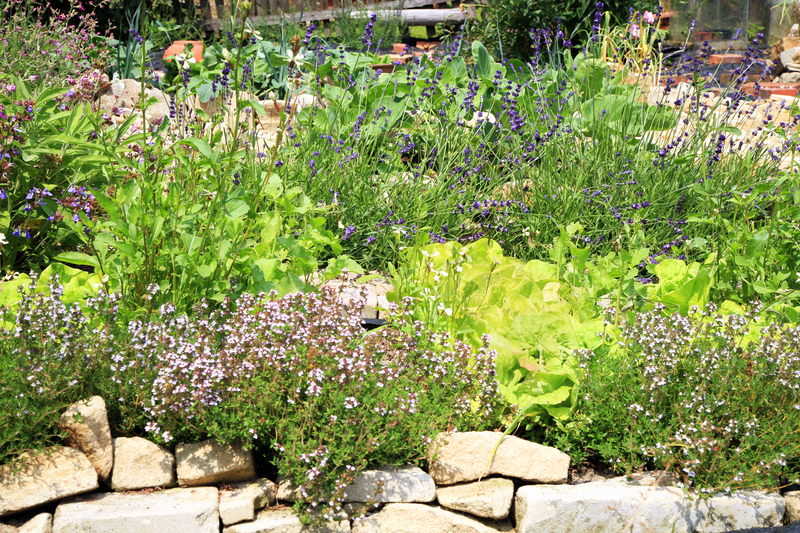Winter Effects on Your Lawn
Posted on 12/05/2025
Winter can be a challenging season for homeowners, particularly when it comes to maintaining a healthy lawn. The cold, snow, and ice can have various effects on your turf, some of which can cause lasting damage if not properly managed. In this article, we will explore the different ways winter can impact your lawn, provide practical tips for lawn care during the colder months, discuss the pros and cons, and conclude with key takeaways.
How Winter Weather Affects Your Lawn
The winter season introduces several environmental stressors that can significantly affect your lawn. The most common issues include:

Frost and Freezing Temperatures
When temperatures drop below freezing, frost forms on the grass, causing the water within the plant cells to freeze. This freezing can rupture cell walls, leading to damaged grass blades that appear wilted or burned when temperatures rise.
Snow Coverage
A thick blanket of snow can act as an insulating layer, protecting grass from extreme cold and wind. However, heavy snow can suffocate the grass by cutting off its air supply, leading to potential mold and fungus growth under the surface.
Ice Damage
Ice build-up from freezing rain or melted snow can create a barrier that prevents grass from getting the necessary oxygen and sunlight. This can cause the turf to weaken, making it susceptible to diseases.
Salt and Chemical Exposure
De-icing salts and chemicals used on sidewalks and driveways can leach into the soil, potentially causing burnt patches and hindering grass growth upon contact.
Foot Traffic and Compaction
Heavy foot traffic on a snow-covered lawn can compact the soil, making it difficult for grass roots to access essential nutrients and air in the spring.
Animals and Rodents
Wildlife looking for food may burrow into your lawn or create paths in the snow, potentially damaging the turf.
Proactive Lawn Care During Winter
Maintaining a healthy lawn requires proactive measures, even when temperatures plummet. Here are some practical tips to help mitigate winter damage:
Tips for Protecting Your Lawn
1. Remove Debris: Clear fallen leaves, twigs, and any other debris to prevent mold and mildew growth.
2. Mow Before Winter: Give your lawn a final mow, keeping the grass about 2-3 inches tall to minimize matting under snow.
3. Aerate the Soil: Aerating before winter allows your grass to breathe and reduces soil compaction.
4. Fertilize in Late Fall: Apply a winter-specific fertilizer to help the grass roots store nutrients for the cold months.
5. Avoid Foot Traffic: Limit walking on your lawn during winter to prevent soil compaction and damage to the grass blades.
6. Manage Snow Piles: Spread out large piles of snow to ensure even melting and reduce the risk of suffocating your lawn.
7. Monitor for Pests: Keep an eye out for signs of burrowing animals and take measures to control their activity.
Pros and Cons of Winter Lawn Care
While winter lawn care might seem daunting, it has its advantages and disadvantages.
Pros:
- Prevents long-term damage by addressing issues early.
- Improves lawn resilience and health for spring.
- Encourages thicker, more robust grass growth.
Cons:
- Requires time and effort during an already busy season.
- Potential for higher costs due to fertilizers and treatments.
- Difficulties in managing wildlife and environmental factors.

Key Takeaways
- Winter presents multiple challenges for lawn health, including frost, snow, ice, and pests.
- Proactive lawn care, such as aeration, proper mowing, and fertilization, is crucial for mitigating winter damage.
- Monitoring foot traffic and managing snow piles can also help in maintaining a healthy lawn.
- Weighing the pros and cons of winter lawn care can help you decide on the best strategies for your specific situation.
Conclusion
Winter might be a tough season for lawn care, but with the right preparation and proactive measures, you can protect your turf against the harshest conditions. By understanding the effects of winter on your lawn and taking action accordingly, you'll set the stage for a lush, green lawn come spring.
Whether you're a seasoned homeowner or new to lawn maintenance, these tips and strategies will help you navigate through winter effectively. Remember, the effort you put in during the colder months will yield significant benefits when growing season returns.
Latest Posts
Essential Tools for Passionate Gardeners
Top 9 Gardening Tips for Newbies
Top Edible Wild UK Plants and Flowers



